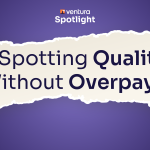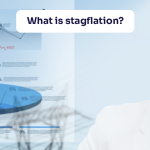While appealing to the masses to make the 21-day long lockdown successful in a fight against Corona, India’s Prime Minister had warned of India going back 21 years, if citizens didn’t follow it religiously.
You will realize the seriousness of his statement if you read a report published by International Labour Organisation (ILO) that assessed the impact of the corona outbreak on the global job market. No wonder, India has now adopted a decentralized exit strategy (from lockdown), which aims at achieving a twin objective—Jan bhi and jahan bhi (saving lives as well as saving livelihoods).
According to ILO, 40 crore Indians run a risk of getting trapped in a vicious circle of poverty due to a stringent 21-day lockdown followed by India to counter the coronavirus pandemic. Moreover, ILO expects the corona outbreak to erase approximately 19.5 crore jobs globally. ILO has termed it as the most severe crisis since the second World War.
The US, world’s largest economy witnessed a sharp spike in the unemployment rate between February and March from 3.5% to 4.4% and that’s a matter of concern for the global economy.
First and foremost, it remains to be seen how many job losses across the world as well as in India are temporary and how quickly the employment situation returns to normalcy. Then too, wage growth and personal indebtedness will remain crucial indicators to track.
Needless to say, the outlook of any sector Before Corona (BC) and After Corona (AC) can be vastly different. For example, discretionary spending on cars, white goods etc. may take a back seat as individuals would focus on repairing their personal balance sheets.
Speaking about India, some experts believe, Indian lenders may see delinquencies in retail loans as the impact of the coronavirus pandemic could be significant. Banking and financial institutions in India, except foreign banks, haven’t been efficient in passing on the benefits of rate cuts. As a result, while rates on deposits are adjusted faster, those on advances have a lag. On this backdrop, India’s monetary policy response hasn’t translated into any significant immediate relief to majority of borrowers.
You may also like to read: Don’t let coronomics spoil your dosanomics
Now that RBI is also open to adopting avant-grade measures and deep rate cuts, senior citizens and those depending on the interest income are likely to see their income going down. Is inflation going to fall substantially at the grassroots levels? Dosanomics may not work for Indians—a theory which focuses on inflation-adjusted interest rates rather than nominal interest rates.
The above survey was done before India went into lockdown.
Under such a scenario, government’s fiscal policy response and the progress of India in containing the spread of virus will matter the most. Export oriented sectors and those depending on the global capex might struggle, going forward, unless the situation on ground improves faster than expected in the world’s major economies.
Well, shrugging off gloom, markets have rallied close to 20% from their March lows but are these just the relief rallies? Time will tell. The result season is around the corner. While it’s likely to be a whitewash quarter (Q4FY20) for most of the companies, their guidance would be crucial. After all, companies managing to grow even in the slowdown period attract investors.
Interesting read: Bear market rally or the start of a new bull market?
Some experts are predicting Work From Home (WFH) will get popular in the After Corona era, as companies rationalise their supply chains and recalibrate human resources planning.
While speaking to the media, India’s former chief economic advisor Dr Kaushik Basu hinted at how the world may look After Corona. The health sector will see huge growth — more doctors, more nurses, more pharmaceuticals and more medical research. Nations that gear themselves better for this will do well and by the same argument, others will do worse. He also fears the present crisis may result in higher inequality and unemployment.
In conclusion
Consumer confidence and (therefore) consumer spending is expected to remain in the slow lane. The focus and the spending of governments across the world will be on the economic revival and not on growth. Thus, what can wait until later may have to wait longer—mass adoption of EVs in the western economies and fast roll out of 5G, among others.
On the investing front, will life essentials—FMCG products, clothing, small-ticket consumer spends and pharma be the favourite themes on Dalal Street, After Corona?
Keep an eye on the sectoral movement, quarterly results and guidance of corporations.
And do read this space regularly to be able to take well-informed decisions.
Editor’s note: Write to us at blog.content@ventura1.com for our ppt on “Investing under COVID scenario” for a detailed analysis of stocks we believe will perform well.
Disclaimer:
We, Ventura Securities Ltd, (SEBI Registration Number INH000001634) its Analysts & Associates with regard to blog article hereby solemnly declare & disclose that:
We do not have any financial interest of any nature in the company. We do not individually or collectively hold 1% or more of the securities of the company. We do not have any other material conflict of interest in the company. We do not act as a market maker in securities of the company. We do not have any directorships or other material relationships with the company. We do not have any personal interests in the securities of the company. We do not have any past significant relationships with the company such as Investment Banking or other advisory assignments or intermediary relationships. We are not responsible for the risk associated with the investment/disinvestment decision made on the basis of this blog article.

How is COVID-19 shaping up the future healthcare spending?
4 min Read May 8, 2021
Pharma sector revived in 2020; will it flourish in 2021?
5 min Read Jan 2, 2021
Mangalam Organics: can it do sabka mangal?
4 min Read Dec 4, 2020
Secrets revealed: Identifying pharma stocks for the post-COVID world
8 min Read Sep 25, 2020
Do you have any distressed company in your portfolio?
4 min Read Sep 9, 2020
Revisiting the Gold-Silver Ratio Amid Silver's Outperformance
4 min Read Dec 22, 2025
Midcaps: Sweet Spot or Danger Zone? | What HSBC MF’s Cheenu Gupta Thinks | Ventura Spotlight
4 min Read Dec 17, 2025
Understanding Option Pin risk near expiry
4 min Read Dec 12, 2025
EPS in the Stock Market
4 min Read Dec 12, 2025
What is stagflation?
4 min Read Dec 10, 2025
Post your comment
You must be logged in to post a comment.